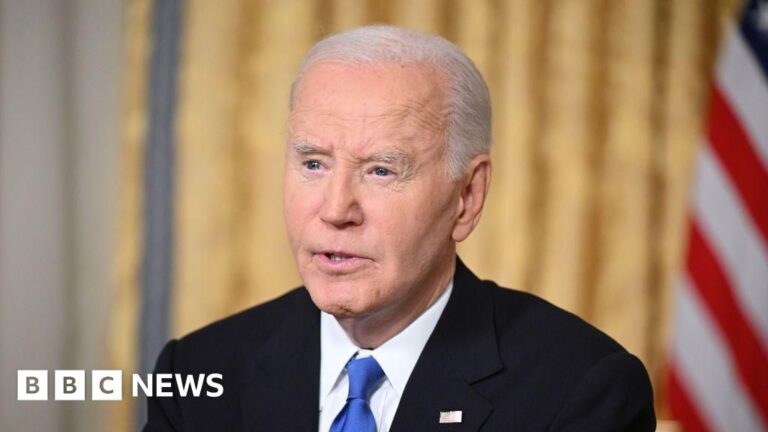Trump Announces Plans to Revoke Biden’s Security Clearances: What It Means
In a bold and controversial move, former President Donald Trump has announced his intention to revoke Joe Biden’s security clearances. This declaration not only marks a major escalation in American political rhetoric but also raises essential questions regarding national security and the implications of such decisions on the U.S. political landscape.

The Background of Security Clearances
Security clearances are essential for individuals who are privy to classified information in the United States. The process is often intricate and rigorous, involving extensive background checks and assessments of an individual’s loyalty, trustworthiness, and reliability. As of early 2022, approximately 4.2 million individuals held some level of security clearance, according to the U.S. Office of Personnel Management. Among them are military personnel, government officials, and contractors who handle sensitive information critical to national security.
Trump’s statement comes after a tumultuous period in political relations since the 2020 presidential election. During his time in office, Trump faced substantial criticism for several actions, particularly relating to security protocols. Many experts warn that attempts to politicize security clearances can have dangerous implications for national security.

Analyzing Trump’s Claims
Trump’s announcement reflects a broader narrative he has been pushing regarding Biden’s competency and credibility in foreign policy and national defense. He articulates that revoking these clearances is justified due to concerns about Biden’s decisions affecting the United States’ security status. Trump asserts that national security is paramount and insists that his leadership during his presidency was more effective at maintaining national stability.
Interestingly, according to a survey by Gallup, when Americans were asked about their views on security clearances, nearly 68% expressed that they believe security clearances should be politically neutral and not subject to whims of the administration. This statistic demonstrates that Trump’s declaration may not resonate as widely with the public as he hopes.
The Implications of Revoking Clearances
If Trump were to pursue revoking Biden’s security clearances—a process that would require significant legal and procedural steps—the ramifications could be profound. Traditionally, security clearances are viewed as a safeguard for ensuring that experienced officials maintain access to crucial information necessary for informed decision-making.
Moreover, revoking clearances can set a dangerous precedent. If security clearances become tools for political leverage, it may open doors for future administrations to retaliate against their opponents. In a nation where partisan division appears to be growing, further politicization may exacerbate tensions rather than heal them.

Public Reaction and Political Ramifications
Social media platforms reacted swiftly to Trump’s comments, with opinions sharply divided. Trump supporters largely laud the move, claiming it is a necessary step to protect American interests. Conversely, critics argue that such actions would only serve to deepen divisions and lead to mistrust among the political elite.
Biden, who served as vice president under Barack Obama and was the head of the Foreign Relations Committee, has extensive knowledge of national security matters. By withdrawing his access, it could hinder the potential for collaboration and communication between varying levels of government, which is crucial in times of uncertainty.
A recent poll conducted by Pew Research indicated that approximately 54% of Americans are concerned about the impact of political polarization on national security, a sentiment that may grow stronger if moves like revoking security clearances are made.

Conclusion
Trump’s declaration to revoke Biden’s security clearances opens up a complex dialogue on the intersection of national security and politics. It highlights the importance of maintaining neutrality in security protocols and raises concerns about the erosion of trust in governmental institutions. The potential consequences of such actions could reverberate not just within political circles but also among the general public, who are increasingly wary of partisan politics influencing decisions that affect national safety.
As the situation continues to evolve, it reminds us that national security must remain a bipartisan responsibility—one that transcends party lines and prioritizes the safety and well-being of the American populace above all else. Keeping politics out of security clearances is not just a moral imperative, but also a necessary component of a stable democracy.

In the weeks ahead, it will be crucial to follow how this story develops and what steps, if any, will be taken regarding Biden’s security clearances. The dialogue surrounding this issue may very well redefine the relationship between security clearances and political maneuvering in the United States.


